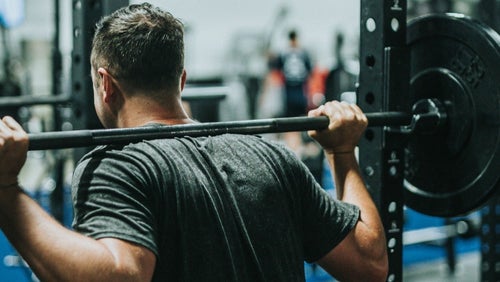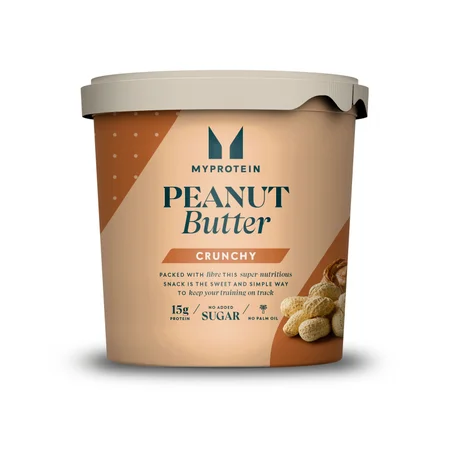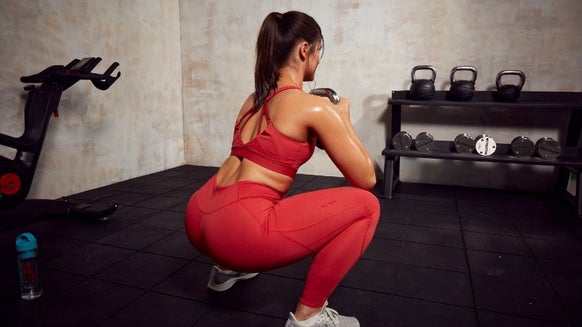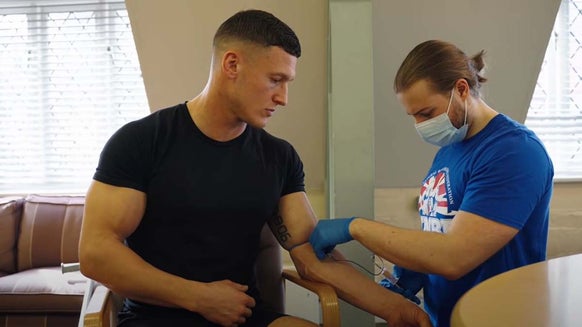Why You Can’t Target Belly Fat | Expert PT Reveals

It’s common to hear someone say they’re trying to lose fat in a specific area of their body by doing a certain type of exercise or taking some form of supplement. So let’s put this straight right away with a polite “fake news” alert: you cannot spot reduce fat from any area of your body, especially your abs. It’s simply not possible.
We repeat: you cannot spot reduce body fat from a specific area of your body.
Myprotein PT Chris Broomhead is here with a body fat masterclass to bust any myths and give you all the information you need to succeed on your weight loss journey. There's no point wasting your time following pointless myths when you could be putting your time to far better use, so Chris is here to set the record straight and put you on the right path.
4 fat loss-myths
Myth 1: Ab exercises will help burn body fat
While ab exercises can help you to develop a six-pack and help with core strength, they won’t necessarily burn body fat from your midsection. Boo.
Yes, working out in any way helps to burn body fat, but we’re talking about targeted body fat loss. Doing thousands of crunches will not burn body fat from your abdominal area alone.
Your abs will become stronger and more developed if you work on them. But if you want them to show, your body fat percentage will need to be very low, so you should try to lose body fat from your entire body. Focus on training everything evenly, create an energy expenditure, and your abs should eventually show.
Myth 2: you need to avoid carbohydrates to burn body fat
We've said it before, and we’ll say it again. Losing body fat and losing weight comes down to a calorie deficit. So, reducing carbs may result in a calorie deficit and this may be why avoiding carbs helps you to lose body fat. But in reality, it’s not about the carbs. Carbs are not the enemy, leave them alone.
In fact, carbs may actually help you to lose body fat... stay with us on this one. Carbs provide you with the energy you need to power your workouts. And as you work out, you’re likely to burn body fat and build muscle, so without carbs your performance could be sub-optimal.
But it’s the type of carb you do need to watch out for. Reduce the amount of refined carbs you eat, and instead focus on rice and potatoes to fuel your training. No complaints here. These carbs will fill you up more, so you can reduce your snacks, or your portion sizes to achieve your calorie deficit and lose body fat.
Myth 3: you need to cut fat out of your diet to lose body fat
People gain body fat because of a calorie surplus. We’ll say it once more: to lose body fat you need to be in a calorie deficit. So, you need to reduce your overall calorie intake, but this doesn’t mean you need to cut out fat. Some fats are essential and are needed for a healthy diet:
Myth 4: just do cardio to lose body fat
Cardio has its place, but it’s not the be all and end all. You can only burn so many calories before you run out of energy, so your aim should be to move as much as you can throughout the day. Gym classes, weight training and steps burn calories. It's all about moving as much as possible, taking the stairs when you can, parking further away at the shops — it doesn’t all need to be cardio, cardio, cardio to lose body fat.
Take Home Message
Next time you’re wondering why you’ve not lost weight after cutting out carbs, come back to Chris’s masterclass. Carbs and fat are not the enemy, and cardio isn’t your only friend. And you absolutely cannot train to lose belly fat. The truth hurts, but it’s better to know than live in the dark.
READ MORE HERE:

Fat Loss & Building Muscle | The Secret's Out
You don't want to miss this winning formula.

Rapid Weight Loss | Why Fad Dieting Can Be Dangerous
And how you can lose weight safely.

Best Supplements For Muscle Gain & Fat Loss | Beginner’s Supplement Guide
The basics of building muscle and losing fat.










